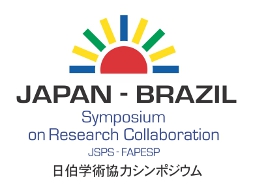Tokyo Symposium brings together researchers from Japan and Brazil
The presidents of FAPESP and the Japanese Society for the Promotion of Science (JSPS) stress the importance of increasing science and technology collaboration between the two countries
By Heitor Shimizu, in Tokyo
Agência FAPESP – “Cooperation with Japan is especially relevant for FAPESP. Japan is a country that has the immense respect of FAPESP and the scientific community of the state of São Paulo for its science and technology research capacity, an essential element for exploring new ways in which to successfully overcome the challenges of balanced and sustainable global development,” said Celso Lafer, President of FAPESP, at the opening ceremony of the Japan-Brazil Symposium on Scientific Collaboration, organized by the Japan Society for the Promotion of Science together with FAPESP March 15-16 in Tokyo.
The importance of further strengthening the historically strong relationship between Japan and Brazil, a country that is home to the largest Japanese population outside Japan, was also underscored by Yuichiro Anzai, President of the JSPS.
“I hope that this symposium, which we have had the pleasure of organizing, is able to contribute to increasing collaboration between the two countries in the field of science. The JSPS believes that international research partnerships are crucial, and for us, collaboration with FAPESP is an important part of this exchange process,” he said.
“As Brazil’s minister of external relations in 1992 – and again from 2001 to 2002 –, and now with the mission of leading FAPESP, I am convinced that scientific cooperation is one of the elements that promotes understanding based on shared values. Science unites people and scientific research is a way, not only to validate knowledge among people, but also to increase good bilateral relations, like those between Brazil and Japan,” Lafer emphasized.
The FAPESP president mentioned that over the last 20 years, the Foundation has supported more than 660 research initiatives related to Japan in all fields of knowledge, such as scientific gatherings, grants that enable researchers from the state of São Paulo to work in partnership with Japanese colleagues, support to Japanese researchers who come to the state of São Paulo to conduct collaborative research as well as the publication of numerous books about history, economics, engineering, the arts, political sciences and anthropology related to the Japanese culture.
The opening ceremony of the symposium that has received support by the Embassy of Brazil in Tokyo was also attended by Ambassador Marcos Bezerra Abbott Galvão, and President of Rikkyo University, Tomoya Yoshioka.







